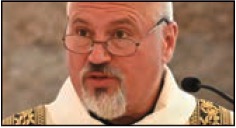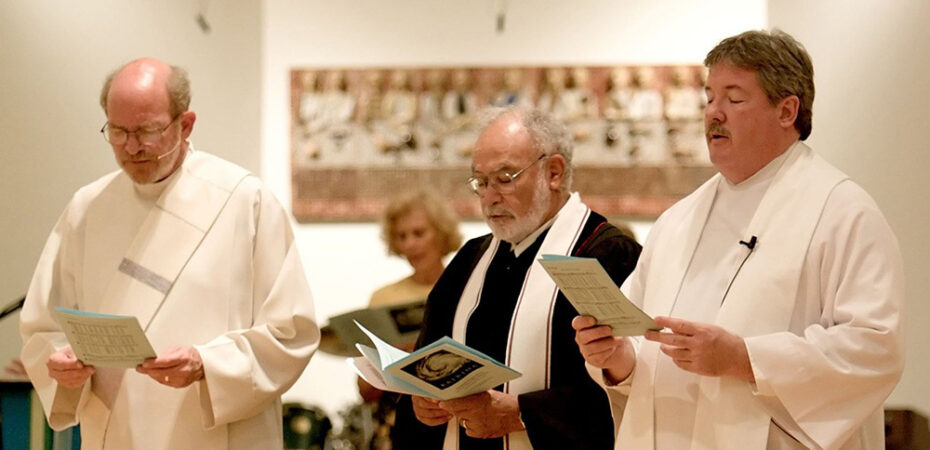The Deacon’s Connection with Ecumenical/Interfaith Ministry
The importance of interreligious dialogue
Deacon Steve Kramer Comments Off on The Deacon’s Connection with Ecumenical/Interfaith Ministry
 Fifty-seven years ago, on Oct. 28, 1965, the Declaration on the Relation of the Church to Non-Christian Religions (Nostra Aetate) was promulgated. It opens with, “In our time, when day by day mankind is being drawn closer together, and the ties between different peoples are becoming stronger, the Church examines more closely her relationship to non-Christian religions. In her task of promoting unity and love among men, indeed among nations, she considers above all in this declaration what men have in common and what draws them to fellowship” (No. 1).
Fifty-seven years ago, on Oct. 28, 1965, the Declaration on the Relation of the Church to Non-Christian Religions (Nostra Aetate) was promulgated. It opens with, “In our time, when day by day mankind is being drawn closer together, and the ties between different peoples are becoming stronger, the Church examines more closely her relationship to non-Christian religions. In her task of promoting unity and love among men, indeed among nations, she considers above all in this declaration what men have in common and what draws them to fellowship” (No. 1).
Prior to Nostra Aetate, the Second Vatican Council had also released Unitatis Redintegratio (the Decree on Ecumenism) a year earlier. This significant document declared, in its opening line, “The restoration of unity among all Christians is one of the principal concerns of the Second Vatican Council.”
It is essential that Roman Catholic deacons understand and embrace these principles. In the 2021 National Directory for the Formation, Ministry, and Life of Permanent Deacons in the United States of America, an entire section of a candidate’s intellectual objectives centers on knowledge of Christian doctrine and tradition. Here, deacons are reminded of the necessity to reflect on the needs of our time, such as family life perspectives, multicultural sensitivity, Catholic social teaching, documents of the USCCB, and “the study of the beliefs and practices of other religions and Christian denominations — deepening a spirit of ecumenism and interreligious dialogue” (No. 128).
Of course, there are differences between ecumenism and interfaith dialogue.
Ecumenism is an undertaking toward Christian unity between various religious traditions (Catholic, mainline Protestants, Orthodox, Byzantine, evangelicals, etc.). It emphasizes the universality of Christian unity among churches and promotes harmony and cooperation. This dialogue is a conversation that focuses on an increased understanding of the other. For Catholics raised in the 1950s and ’60s, the decrees and documents of Vatican II were quite revolutionary, because now there was an acknowledgment that the Holy Spirit was at work in the Protestant churches, as well as within the Catholic Church.
On the other hand, interfaith dialogue promotes peace, mutual understanding and cooperation between Christians and non-Christian peoples (Jews, Muslims, Hindus, Buddhists, etc.). Interfaith dialogue dispels ignorance and “fear of the other.” It explains our differences yet shines light on the similarities of justice and peace within many of the world’s religions. In an October 2022 article from the Pontifical and Royal University of Santo Tomas — The Catholic University of the Philippines, Professor Lilian J. Sison, Ph.D., shared her thoughts on how Nostra Aetate gives three fundamental reasons why dialogue is essential in the life of the Church: (1) the conviction that all men and women belong to one human family; (2) that people of differing religions (even nonbelievers in Christ) have a spiritual sense of the divine; and (3) the universal principle that all people have a shared responsibility for the common good. These are all integral components for continuing ecumenical/interfaith dialogue.
In September 2022, I was nominated to receive the Archbishop’s Award for Service in Ecumenism (Archdiocese of Milwaukee). I’ve been actively engaged in ecumenical and interfaith ministry for over 30 years. The day after the 9/11 attacks, several ministers and I organized gatherings to pray for the first responders, the survivors and the dead. This ecumenical moment solidified our community during unprecedented grief and fear.
As deacons living and working with people of all faiths, we recognize firsthand that humankind is indeed being drawn closer together. In such challenging moments, we bring Christ’s presence to all who may benefit from Jesus’ healing embrace.
DEACON STEVE KRAMER, D.Min., is director of homiletics and associate professor of pastoral studies at Sacred Heart Seminary and School of Theology in Hales Corners, Wisconsin.





